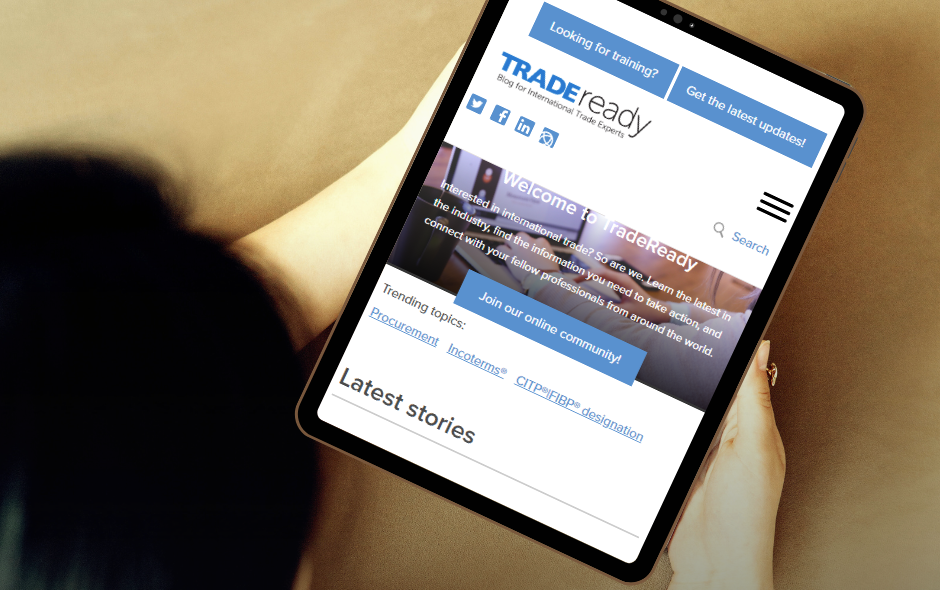Transportation companies are the backbone of industry; they are the key connecting pieces striking a balance between supply and demand. Ground freight companies play a macro and micro role in this process and have been doing so for decades. So, what happens when freight demand changes and digital freight technology pits companies against each other? Below, we’ll investigate the answer to this pivotal question.
Effects of a lower demand for ground freight
In the wake of the COVID-19 pandemic—a world event that spiked freight demand exponentially—the trucking industry has now entered a recession-like period due to an inflated number of drivers and a normalized demand for ground transportation. What does this mean for consumers in the trucking industry and the shipping companies that supply them? Let’s find out.
Effects on customers
From the customer end of the spectrum, a lower market demand for ground freight is a positive thing. They’ll get to take advantage of shorter (or non-existent) wait times for shipping, last-minute availability, and more affordable shipping costs.
Effects on shipping companies
Shipping companies, on the other hand, suffer as a result of lower demand.
Global Trade magazine says the decline in demand has “placed the sector at a disadvantage during annual contract negotiations.”
Since there are more trucks available than loads that need shipping, shipping companies have to compete against each other and lower prices in order to secure short-term and long-term contracts.
Digital freight brokerage and AI
Freight brokerage is the business of matching truck drivers to shipping companies and other businesses that require their services. Freight brokerage can occur between independent truck drivers and small businesses, but it is also used within a single company to streamline communication between drivers and warehouse personnel.
The freight brokerage process used to be conducted with paper and phone calls, but the industry has been making a switch to digital freight brokerage, particularly with the use of artificial intelligence technology.
Digital freight brokers can take two forms. Businesses that prefer working directly with people rather than technology can hire a digital freight brokerage company that will gather information about available drivers, as well as the details of the load that needs to be shipped, and then will handle the matchmaking process. There are also digital freight broker apps that collect the same information and allow businesses to cut out the middleman.
The main benefit of digital freight brokerage is the ability to match customers to freight trucks much more efficiently. Not only does this make the process easier for everyone involved, but it also streamlines the entire supply chain and improves customer satisfaction and loyalty.
Hwy Haul describes five benefits of digital freight brokerage: time savings, less paperwork, better prices, 24/7 access, and optimization of driving routes.
Competition within the shipping industry
Due to changes in demand for ground freight along the entire supply chain, competition in the shipping industry has grown significantly. Most notably, long-standing shipping companies are being pitted against newer startups with a highly digital business portfolio.
Legacy shipping companies are still fairly determined to maintain the status quo and are resistant to change. Unfortunately, slow attempts to digitalize will simply not be able to sufficiently meet the changing needs of businesses on a global scale. While they are currently responsible for a large portion of the market, new digital-based startups are innovating and stirring up interest in a new way forward.
Commerce Ventures summarizes things perfectly:
“The lack of action by the most dominant players to address the industry’s biggest challenges has given rise to a growing number of startups ready and waiting to disrupt trucking as we know it.”
As businesses start to demand faster shipping times, more accessible brokers, and better rates, the newer digital companies will have an undeniable edge over long-standing companies set in the ways of the past. Given the current state of the industry, legacy shipping companies will undoubtedly begin to lose their hold on the market in favor of revolutionary startups.
Expected developments in shipping tech
Although the future is impossible to predict, industry experts can make educated guesses in regard to the expected developments for the short term and long term where digital brokerage and AI trucking are concerned.
Short term predictions
Digital freight brokerage is afflicted by a number of challenges that prevent it from serving the entire industry right now. For example, the shipping solutions available from this source today are heavily skewed towards flat beds and vans and away from niche specializations like refrigerated trucks. As a result, much of the industry cannot be served. In the short term, it is predicted that this problem and others will be solved by a growing demand for the services and advancing technology.
In the field of self-driving trucks, the short-term expectations are as follows: research and development will continue, including road testing and small-scale integrations, and industry leaders will continue to open their minds to the possibilities of autonomous trucking.
Long term predictions
Digital brokers have been called a “solution to improve agility, reliability and performance of supply chains…” by CIFFA. As time goes on, it is expected that the digitalization of freight brokerage will transition from its role as a new trend to an established norm in the industry.
As technology advances, self-driving trucks will also make their way onto roadways through one small integration at a time. Autonomous trucking has the potential to revolutionize the industry as a whole, but it is also fraught with technology-related barriers and the challenge of trust and safety in fully autonomous vehicles.
As the trucking industry continues to evolve toward a digital future, digital freight brokers will become an even more integral component of the supply chain. Innovation in the realm of AI trucking—particularly self-driving trucks—will become more mainstream, and legacy shipping companies will be forced to either keep up with the changing technology or fall far, far behind. The future is coming, and the future is digital freight brokerage and AI technology.







Interesting article. I’m a legacy freight broker and I’m seeing a lot of digital freight startups popping up. I’m curious to see how this will play out.